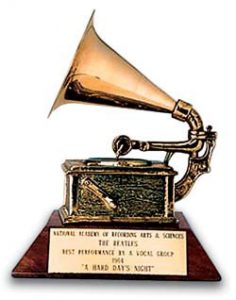Recording company agreement
 Concluding a contract with a record company every year becomes more and more difficult process. The times of producers working as Phil Spector, who found a group by watching performers in the studio and then making them popular, are long gone.
Concluding a contract with a record company every year becomes more and more difficult process. The times of producers working as Phil Spector, who found a group by watching performers in the studio and then making them popular, are long gone.
Nowadays, in the music business, sometimes more business than music. Recording companies and music publishers rely on hits made by superstars in the struggle for profits, and therefore the way we search for new names in the music business has undergone significant changes.
There was a time when a performer, group or songwriter could send a demo tape to a record company as “unsolicited” material – that is, none of the record company required this demo tape. It was someone’s work, listen to the demo tape and give impetus to the performer with the hope that he will become a star.
As more and more performers began to produce demos and send them to record companies, the task to listen to “unsolicited” tapes became too huge and impracticable for the average size of the record company. Record companies also faced unknown aspects of copyright related to the taped “unsolicited” tapes, because the courts began to receive claims from authors about the use of such records in violation of copyright law.
Ultimately, labels and publishers began to accept tapes only from well-established music lawyers or managers who had a reputation in the business as “hit makers.”
In America, this may seem like an impossible task to get a contract with a major, something like a vision of the gates of heaven, but this is not impossible.
One reliable way to make your group seen by a major is to become more businesslike by yourself. “Everyone loves a winner – especially a record company” (in the Russian version: “winners-flowers”). Take, for example, Hootie and The Blowfish. Hootie could not get a contract with any of the majors. They all listened to their demo and that was it. It took a 22-year-old marketing researcher from Atlantic Records in New York to get a contract for this group. How? Very simple. His tool of choice was the telephone.
This marketer did his business in this way. He called the music stores in small towns to find out which of the local groups and in what volumes were selling their music in their own backyard. When a diligent young man discovered that Hootie had sold a large number of CDs in Colombia, he immediately went to see the vice-president of Atlantic to decide about signing a contract with this group. The vice president replied to him, “slow down the boy.”
Such an answer did not stop our young man. He went to the reception of the Chairman of the Board of Atlantic, who ordered the vice-president to immediately sign a contract with Hootie and the Blowfish. The moral of the story is that if you cannot find a reputable lawyer or manager, self-advertisement becomes your main weapon.
But don’t let me mislead you. It requires serious planning and thoughtful execution of plans in order to sell a sufficient number of CDs on its own and thereby attract the attention of serious labels. The group mentioned by us from Colombia sold from 50,000 to 100,000 CDs. This is a lot of selling CDs by the group itself.
To accomplish such a feat, you need several means. The first one, of course, is an incredibly good recording. “As good as …” is not enough. You have to sound unique and have incredibly catchy melodies. The long-lasting sound of the compositions is also not harmful, and it gives the public an opportunity to understand that you perform on a regular basis, which is very important. By this I mean speaking during promo tours.
The promotion tour can begin with several speeches and gradually increase their number. I recommend starting the engagement for one paid performance within your region and as soon as you start to collect a full club / hall, proceed to expanding the region of your performances. First, play in clubs within a radius of 100 miles. Then 200 miles, 300 and so on. Agree on mentioning you in the press in the cities where you are speaking, send an authorized person there to organize the posting of advertising posters, and arrange with local radio stations that will stimulate your performances. If you are lucky, you can collect a large number of people, which will allow you to sell a large number of CDs.
The biggest mistake that I want to warn you against is not to print a thousand CDs without having a clear marketing plan that makes it clear how and to whom you will sell them.




